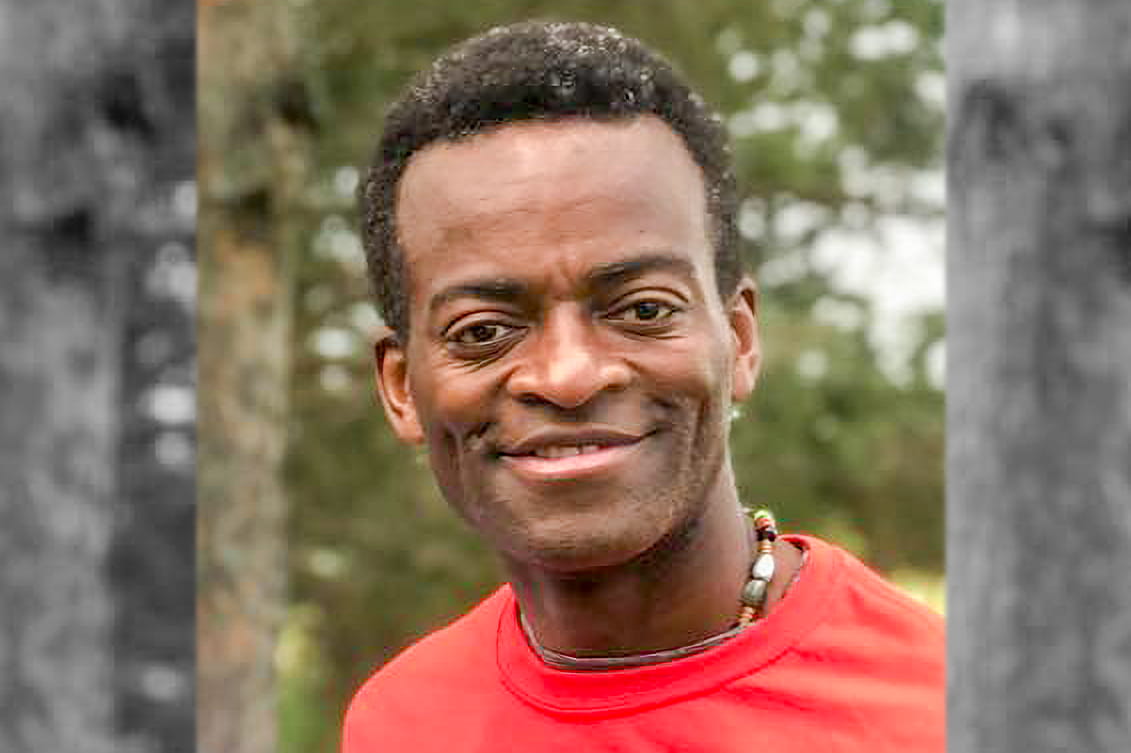Council Passes Anti-Bullying Bill
LGBT-inclusive legislation sets citywide standards for anti-bullying measures in schools and beyond
By John Riley
June 7, 2012
The D.C. Council unanimously passed a comprehensive anti-bullying bill Tuesday adding the District to the list of 15 states that have passed anti-bullying laws with specific protections for gender identity and expression, and sexual orientation.
At the council’s June 5 legislative meeting, Council Chairman Kwame Brown (D), who has since resigned, removed the bill from the consent agenda in order to add a technical amendment that clarified provisions for immunity granted to those who report bullying.
The bill, The Youth Bullying Prevention Act of 2012, caps off more than a year of legislative wrangling to pass a comprehensive anti-bullying bill that includes LGBT protections. Originally introduced in January 2011, the bill stalled in a logjam that followed a mid-year shuffling of committee chairs in which Councilmember Tommy Wells (D-Ward 6) replaced Councilmember Muriel Bowser (D-Ward 4) as chair of the Committee on Libraries, Parks, Recreation and Planning, which had jurisdiction over the bill.
As amended, the bill requires Mayor Vincent Gray (D) to establish a bullying-prevention task force, which will commission a report and create model policy and standards for anti-bullying initiatives, which will then be carried out by the agencies that deal with District youth, such as D.C. Public Schools (DCPS), D.C. Public Charter Schools (DCPCS), the Department of Parks and Recreation, the D.C. Public Library (DCPL) and the University of the District of Columbia (UDC). The task force will be made up of 14 city agency directors, including Jeffrey Richardson of the Mayor’s Office of GLBT Affairs, DCPS Chancellor Kaya Henderson and Metropolitan Police Department (MPD) Chief Cathy Lanier; as well as teachers, parents and representatives of advocacy groups such as the Gay, Lesbian Straight Education Network (GLSEN) and the D.C. Alliance of Youth Advocates (DC AYA).
The legislation requires each agency, as well as their grantees and contactors, to adopt policies that comply with the standards set by the mayoral task force to prohibit harassment, intimidation or bullying on those agencies’ property, at agency-sponsored functions and on school buses. The bill also provides protections for victims or witnesses of bullying from retaliation by employees, students or volunteers at those agencies.
GLSEN released a statement praising the council for passing the bill and urging Mayor Gray to sign the bill into law as soon as possible. If Gray signs the bill, as expected, it will then undergo a 30-day congressional review period.
”GLSEN’s Office of Public Policy has partnered with District agencies such as the D.C. Public Schools and the D.C. Office of Human Rights to assist with city-wide efforts addressing the issue of bullying,” GLSEN Executive Director Eliza Byard said, as quoted in the GLSEN release. ”We look forward to expanding this role under this legislation as a member of the Youth Bullying Prevention Task Force that will investigate and provide solutions for the needs of students in school.”
GLSEN Public Policy Manager Alison Gill said the legislation provides guidance to the task force on the definitions of bullying and the provisions that must be included in any anti-bullying initiatives, so there’s no need to ”reinvent the wheel.”
”I think that this bill gives the task force the tools it needs to move forward with implementing a model policy for people who deal with youth across the city,” Gill said.
Particularly strong elements of the legislation, she added, are including protections for sexual orientation and gender identity, ”whistleblower” protections for teachers or other employees of service agencies, appeal opportunities for both students who claim to be bullied and those accused of bullying, and the scope of the bill’s enforcement in terms of not limiting its reach to schools and school property.
”There has not been an anti-bullying bill passed with the wide applicability of this one,” Gill said. ”It goes beyond schools to affect all youth-serving agencies within the District.”
Gill said she expects task force recommendations to be implemented about a year after the legislation completes its 30-day congressional review.
Star Trek Discovery’s Wilson Cruz Keeps Making Television History
For three decades, Wilson Cruz has been combining acting with activism to ensure that the next generation thrives.
By Randy Shulman on April 15, 2024 @RandyShulman
READ THIS INTERVIEW IN THE MAGAZINE
"I love that you think I have more than one home," laughs Wilson Cruz, settling in at his New York apartment for what will ultimately become a wide-ranging, two-hour Zoom interview. "I am a journeyman actor who has been cobbling together a career for 30 years. That's what I am."
Truth is, Wilson Cruz is much more than that. This is the third time Cruz has been featured on a Metro Weekly cover, and he ensures that a conversation with him feels familiar, like time spent with a best friend. Talking with him is also somewhat of a unique event -- spirited, unbridled, utterly free of artifice. He is warm. He is welcoming. He is wise.
X Will No Longer Permit Misgendering of Trans People
X reinstates its policy against misgendering and deadnaming, but owner Elon Musk does not seem committed to enforcing it.
By John Riley on March 4, 2024 @JRileyMW
The social media platform X, formerly known as Twitter, quietly reinstated an anti-harassment policy that once forbade users from misgendering or deadnaming others.
However, it is unclear if the change will stay in place following comments from owner Elon Musk.
Musk, who has sought to portray himself as a proponent of "free speech," removed the policy in April 2023, responding to users who complained after being banned for expressing anti-transgender sentiment.
In a recently updated section of the platform's policies, the company says that, where required by local laws, the platform will reduce the visibility of posts that "purposefully use different pronouns to address someone other than what that person uses for themselves, or that use a previous name that someone no longer goes by as part of their transition."
Principal Sued for Threatening to Kill Gay Couple’s Son
A federal lawsuit alleges a Milwaukee school administrator threatened and abused a student because the boy's parents are gay.
By John Riley on March 28, 2024 @JRileyMW
A Milwaukee school principal has been sued in federal court by a gay couple who allege he bullied, harassed, threatened, and assaulted their son for having two same-sex parents, violating the child's civil rights in the process.
The parents, referred to as M.P. and T.L. in the lawsuit, claim that Kasongo Kalumbula allegedly mistreated their son because of his family's makeup.
The lawsuit, filed last week in the U.S. District Court for the Eastern District of Wisconsin, asks for a jury trial and seeks an undetermined amount in damages.
It alleges that Kalumbula, who served as the assistant principal, and later, acting principal, of the Milwaukee French Immersion School from September 2018 to October 2021, physically and verbally abused the child -- who was in first grade when the harassment started -- and routinely singled him out for discipline.
Support Metro Weekly’s Journalism
These are challenging times for news organizations. And yet it’s crucial we stay active and provide vital resources and information to both our local readers and the world. So won’t you please take a moment and consider supporting Metro Weekly with a membership? For as little as $5 a month, you can help ensure Metro Weekly magazine and MetroWeekly.com remain free, viable resources as we provide the best, most diverse, culturally-resonant LGBTQ coverage in both the D.C. region and around the world. Memberships come with exclusive perks and discounts, your own personal digital delivery of each week’s magazine (and an archive), access to our Member's Lounge when it launches this fall, and exclusive members-only items like Metro Weekly Membership Mugs and Tote Bags! Check out all our membership levels here and please join us today!
The Magazine
-
Most Popular
 Grindr's New Feature "Roam" Connects Users Around the Globe
Grindr's New Feature "Roam" Connects Users Around the Globe  HRC's Kelley Robinson Makes the Time 100 List
HRC's Kelley Robinson Makes the Time 100 List  DC Black Pride 2024: Everything You Need to Know
DC Black Pride 2024: Everything You Need to Know  Turning 'The Outsiders' Into a Musical Was a Mistake (Review)
Turning 'The Outsiders' Into a Musical Was a Mistake (Review)  Conservative Ad Makes Case for Transgender Rights
Conservative Ad Makes Case for Transgender Rights  Mississippi Man Accused of Slaughtering Ex-Boyfriend
Mississippi Man Accused of Slaughtering Ex-Boyfriend  Star Trek Discovery's Wilson Cruz Keeps Making Television History
Star Trek Discovery's Wilson Cruz Keeps Making Television History  Kansas Governor Vetoes Trans Health Care Ban
Kansas Governor Vetoes Trans Health Care Ban  Melania Trump to Host Log Cabin Republicans at Mar-a-Lago
Melania Trump to Host Log Cabin Republicans at Mar-a-Lago  Bomb Threats Target Freddie's Beach Bar: Update
Bomb Threats Target Freddie's Beach Bar: Update
 HRC's Kelley Robinson Makes the Time 100 List
HRC's Kelley Robinson Makes the Time 100 List  Grindr's New Feature "Roam" Connects Users Around the Globe
Grindr's New Feature "Roam" Connects Users Around the Globe  Kansas Governor Vetoes Trans Health Care Ban
Kansas Governor Vetoes Trans Health Care Ban  Court Blocks West Virginia Trans Athlete Ban
Court Blocks West Virginia Trans Athlete Ban  DC Black Pride 2024: Everything You Need to Know
DC Black Pride 2024: Everything You Need to Know  Conservative Ad Makes Case for Transgender Rights
Conservative Ad Makes Case for Transgender Rights  How Vending Machines Can Save Lives in Substance Abuse Crisis
How Vending Machines Can Save Lives in Substance Abuse Crisis  Star Trek Discovery's Wilson Cruz Keeps Making Television History
Star Trek Discovery's Wilson Cruz Keeps Making Television History  Christopher D. Betts Cooks Up a Tasty "Hot Wing King"
Christopher D. Betts Cooks Up a Tasty "Hot Wing King"  Turning 'The Outsiders' Into a Musical Was a Mistake (Review)
Turning 'The Outsiders' Into a Musical Was a Mistake (Review)
Scene
Metro Weekly
Washington's LGBTQ Magazine
P.O. Box 11559
Washington, DC 20008 (202) 638-6830
About Us pageFollow Us:
· Facebook
· Twitter
· Flipboard
· YouTube
· Instagram
· RSS News | RSS SceneArchives
- "We use cookies and other data collection technologies to provide the best experience for our customers. You may request that your data not be shared with third parties here: "Do Not Sell My Data
Copyright ©2024 Jansi LLC.








